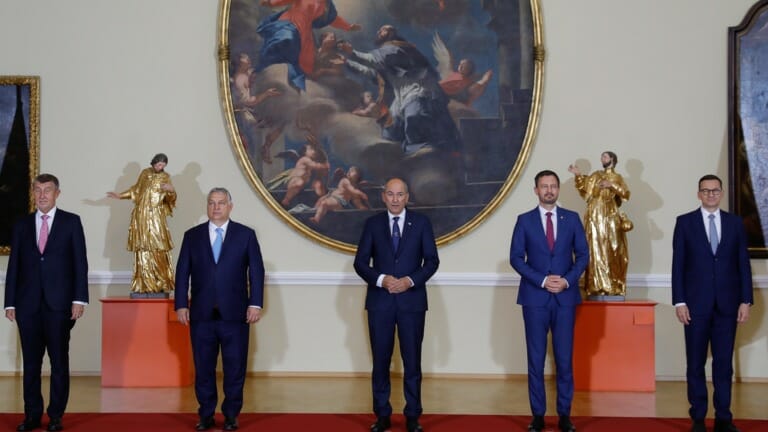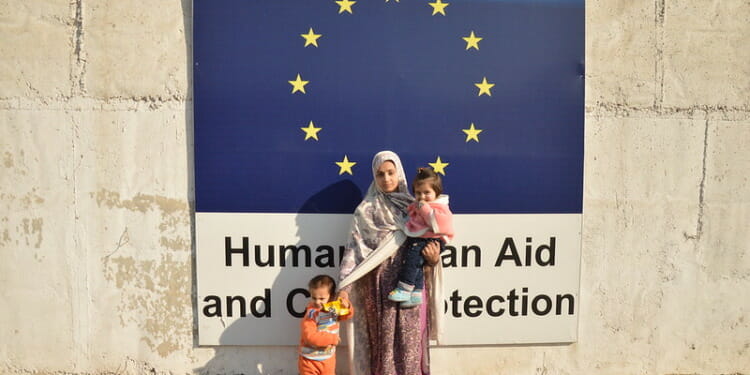A wave of Afghan refugees is the expected result of the withdrawal of America from Afghanistan and its fall in the hands of the Taliban. But the situation is far more complex than that, and a wave of (unwanted?) immigrants is likely to be only one event in a multi-faceted tragedy. For now, Europe is gearing up to face the Afghan refugee wave. But the decisions the EU will take (or won’t take) are, willy-nilly, likely to impact much more than the refugees themselves but the future of Afghanistan.
Yesterday, 31 August 2021, EU Ministers of Home Affairs met for a 5-hour meeting to discuss Afghanistan, and more specifically, as their press communiqué said, the “potential implications in the areas of international protection, migration and security.” That is political speak to say they discussed what they planned to do with Afghan refugees.
Even before Kabul fell to the Taliban, Afghan emigration had surged. A recent EU report on the latest asylum trends said that about 46 300 applications for international protection were lodged in the EU+ in June 2021, a fifth more than in May. And Afghans lodged over 6 000 applications in June, almost 1 000 more than in May and the most since February 2020. Now that Afghanistan is in Taliban hands, expect those numbers to grow exponentially.
A careful reading of the EU Ministers’ statement reveals several interesting points:
- Preoccupation with EU nationals stuck in Afghanistan rightly comes, as expected, with a high priority and it is the very first point mentioned in the statement which says: “In this regard, intensive work is underway to identify targeted solutions for the remaining specific cases of persons at risk in Afghanistan.”
- On migration, the Ministers reiterated their main policy line: To prevent “the recurrence of uncontrolled large-scale illegal migration movements” as those “faced in the past”, a clear reference to the migration events of 2015; hence, the EU is likely to strengthen support to Afghanistan’s neighboring countries (Pakistan, Iran) and “transit countries” to assist them in receiving the refugees, building up their asylum capability and supporting resettlement schemes, although no specific funding is announced;
- Several EU agencies are called upon to assist in the task: Frontex to protect the EU external borders; Europol to monitor criminal links with terrorism; the European Asylum Support Office (EASO) to work on asylum issues in Afghanistan’s neighborhood, resulting in an expansion of EASO’s mandate; so far it did not include extra-EU operations – the most important of EASO’s products was the annual report on the “asylum situation” in Europe – EASO was quick to report this change in mandate on Twitter:
📝Statement on the situation in Afghanistan
[ The mandates of EU agencies should be used to their full extent.
📌 In particular, the European Asylum Support Office #EASO should step up its external operations for asylum capacity building ]
Statement: https://t.co/etMqApNFwu https://t.co/BYYJ9Biexa
— EASO (@EASO) August 31, 2021
- The Ministers manifested concern for women in Afghanistan and specifically called for The Action Plan on Afghanistan (2015-2022) – the Afghan plan, often accused to be a “dream list”, to meet the country’s commitments under UN Resolution 1325 (the first landmark Security Council resolution on women, peace and security adopted in 2000) to be “prioritised and revised” to make it “more operational”; for that purpose, the Ministers said that what was needed was a “Team Europe approach” (born in the context of COVID-19 to “ brand European collective support to partner countries in response to the pandemic”) to “work with Afghanistan’s neighbours to address the impact of displacement in the region”; and the EU Commission is called upon to “assess all options for the necessary financial assistance under the Multiannual Financial Framework” (the long-term EU budget 2021-2027);
- Coordination with international partners and the UN, in particular, remains a priority, and to this end, the EU “will step up financial support to relevant international organisations.”
These five points indicate a clear policy orientation towards migration that is unquestionably dictated by Slovenia which is currently the country holding the EU Council presidency – and therefore directing policies congenial to its own government. As recently as last July, the Prime Minister of Slovenia, Janez Janša, stated that it was fully in line with the policies of the Visegrad group (Hungary, Poland, Czech Republic, Slovakia), notoriously illiberal and anti-migrant. “The positions of the Visegrad Group on the priorities of the Slovenian Presidency largely reflect Slovenia’s positions as well,” he said.
 It is obvious that the EU Home Affairs Ministers’ meeting was overshadowed by a fear of repeating the unchecked 2015 massive inflows of migrants into Europe. How much money the EU is willing to put up to “solve the problem” relying on bolstering Afghanistan’s “neighborhood” is unclear. But according to Politico’s Hans von der Burchard, one EU official, however, said the plan was to offer up to €1 billion to neighboring countries.
It is obvious that the EU Home Affairs Ministers’ meeting was overshadowed by a fear of repeating the unchecked 2015 massive inflows of migrants into Europe. How much money the EU is willing to put up to “solve the problem” relying on bolstering Afghanistan’s “neighborhood” is unclear. But according to Politico’s Hans von der Burchard, one EU official, however, said the plan was to offer up to €1 billion to neighboring countries.
EU leaders simply won’t address the question of whether the EU might potentially accept asylum seekers, apparently out of fears of a “pull effect” that may draw more migrants to Europe. Instead, they throw themselves back onto the usual two solutions: The one outlined above, relying on neighboring countries to control migrant flows; and the other, calling on the United Nations to move in and help control the problem with humanitarian aid.
In fact, that is precisely what European Home Affairs Commissioner Ylva Johansson just did, visiting the U.N.’s Secretary-General António Guterres in New York. They discussed the Afghan humanitarian situation which is rapidly becoming critical. “Today, almost half of the population of Afghanistan — 18 million people — need humanitarian assistance to survive,” Guterres said on 31 August. “One in three Afghans do not know where their next meal will come from. More than half of all children under 5 are expected to become acutely malnourished in the next year. People are losing access to basic goods and services every day.”
EU Commissioner Johansson, returning from New York, said it was crucial that the EU supports Afghans in Afghanistan. “It’s important to see what we can do now to avoid a humanitarian crisis. This is the best way to avoid a migration crisis,” she said. And she wants a focus on women: She said the EU needs “to give protection to the most vulnerable ones — women and girls and activists.” She announced she would soon convene a high-level forum to step up the resettlement.
“the best way to prevent a migratory crisis is to prevent a humanitarian crisis.”
My opening statement at press conference following #JHA @EUCouncil
My thanks to @aleshojs and @EU2021SI for today’s joint statement on #Afghanistan
My opening and Q&A here:https://t.co/INEGL7ppUe pic.twitter.com/m9csBBdiIo— Ylva Johansson (@YlvaJohansson) August 31, 2021
Tomorrow, 2 September, an informal meeting of EU Defense ministers, called by the Slovenian presidency, will be held in Brdo and will focus on the Strategic Compass, the situation in Afghanistan, EU missions and operations, and cooperation with NATO and the UN. Expect even more of the same positions adopted by the EU Home Affairs ministers.
Editor’s Note: The opinions expressed here by Impakter.com columnists are their own, not those of Impakter.com. — In the Featured Photo: Afghan refugees: The path home …Last of all, Neelab is provided with a cash voucher worth $200 (approx. €180), which she can redeem within seven days in one of UNHCR’s encashment centres in Afghanistan. Funded by the European Commission’s humanitarian aid department, this cash grant enables returnees to cover some basic needs when they reach home – often years, if not decades, after they left their country in the first place. In 2016, 58 211 Afghan refugees returned from Pakistan through this process. © European Union/ECHO/Pierre Prakash










